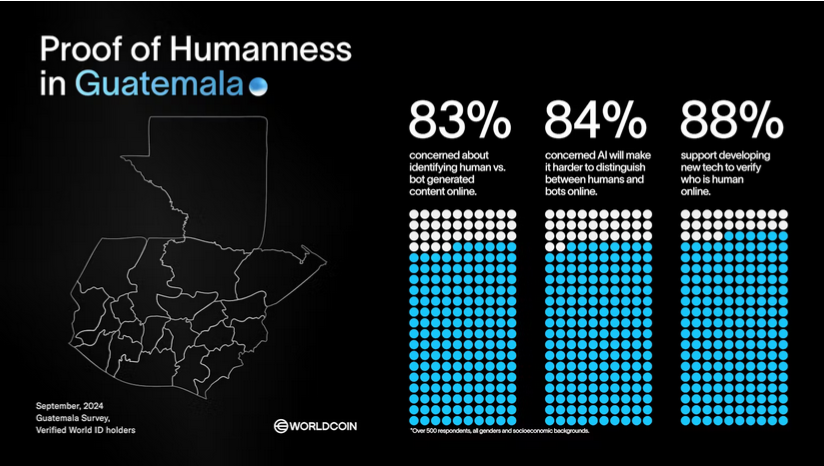Latin America (LATAM) continues to emphasize its growing importance in the global crypto ecosystem. In Colombia, Nexo has joined the Fintech Association, which represents an important step in its regional expansion. Meanwhile, Worldcoin is expanding its World ID verification service to Guatemala, to address digital identity issues in a world increasingly dominated by bots.
This article explores these developments and more, including Bolivia’s rise in cryptocurrency adoption and Brazil’s progress in developing the central bank digital currency (CBDC).
Bolivia’s crypto transactions rise after ban is lifted
Bolivia has seen a rapid rise in cryptocurrency activity since the central bank lifted its long-standing ban on digital assets in June 2024. The Central Bank of Bolivia (BCB) reported a 100% growth in crypto transactions in just three months. Between July and August, the average crypto trading volume in Bolivia rose to $15.6 million, doubling from the $7.6 million recorded in the first half of the year.
Stablecoins have become the preferred choice for many Bolivians, offering an alternative to e-commerce and international transactions. BCB President Edwin Rojas emphasized the importance of this shift.
“The use of virtual assets is a beneficial step towards modernization and economic integration with the world to strengthen international commercial and financial activities. Since the regulation came into effect, the population has had an alternative mechanism to process transfers to and from abroad and electronic trade payments, among other things,” Rojas said.
Despite these gains, Deputy Mariela Baldivieso, a cryptocurrency advocate, emphasizes that more work is needed. Bolivia continues to face challenges, especially in financial literacy and regulatory infrastructure. Baldivieso believes that with stronger education initiatives and clearer regulations, Bolivia could become a hub for crypto innovation in the future.
Worldco expands digital ID services in Guatemala
Worldcoin continues its expansion in Latin America by launching its World ID verification service in Guatemala. Starting September 25, Guatemalan users will be able to use Worldcoin’s orb technology to verify their identity as a human, countering growing concerns about online bots. With a quick download of the World App and an appointment at one of the orb locations, users can ensure their online interactions are genuine.
In a recent survey, 83% of Guatemalans expressed concern about the distinction between human-generated and bot-generated online content. The launch of World ID is seen as a solution to this problem, providing greater security and transparency in digital interactions.

Worldcoin survey in Guatemala. Source: Wereldmint
Worldcoin’s expansion into Guatemala follows previous launches in Ecuador and Mexico, where the technology has already gained traction. However, as Worldcoin grows in Latin America, it has sparked privacy debates in countries like Argentina, where concerns about the protection of biometric data have sparked regulatory discussions.
Nexo Eyes Growth in Colombia with membership of the Fintech Association
On September 26, crypto lending platform Nexo officially became a member of the Colombia Fintech Association. This partnership will allow Nexo to integrate into Colombia’s financial environment and offer digital asset solutions. By joining the association, Nexo can also further collaborate with the local fintech community and explore synergies within the sector.
In a statement shared with BeInCrypto, Elitsa Taskova, Chief Product Officer of Nexo, stated that the partnership with the Colombia Fintech Association reflects Nexo’s commitment to providing cutting-edge digital asset solutions.
“Colombia presents a unique opportunity: with an astonishing 92.1% of the population already having access to crypto-related services, the country is making a remarkable leap towards digital finance. […] We don’t just enter a market; We are giving millions of Colombians access to accessible digital asset tools and shaping the future of finance in Latin America,” said Taskova.
These solutions meet the country’s growing demand for stablecoins and secure cross-border transactions. Over the past year, Nexo has seen a 73% increase in the number of local customers using its crypto yield products. Colombia’s interest in cryptocurrencies, especially stablecoins, is driven by remittances and a growing need for digital financial services.
Paraguay is developing the world’s first national blockchain to promote sovereignty
Paraguay is making waves with the development of Legaledger, the world’s first third-generation blockchain network with national sovereignty. The Paraguayan Blockchain Chamber is encouraging this initiative, with the aim of providing secure, blockchain-based solutions for the public and private sectors. These solutions include financial, civil and military transactions.
Ricardo Prieto, director of the Blockchain Chamber, explained that Legaledger is built on Hyperledger technology. It is designed to provide legal certainty for blockchain transactions and address concerns about security and fraud.
“Our blockchain network model is fractal. […] It can be implemented across a company, conglomerate, state and country, with the same schematic design, and everything would remain interoperable for the purposes of what we call sequencing, publication of the procedure or transaction, including international operations,” Prieto explains.
Through its sovereign blockchain model, Legaledger aims to position Paraguay as a global leader in blockchain governance and innovation. The organization plans to expand its solutions internationally by 2026.
The Brazilian CBDC initiative DREX is entering its second phase of development
The Central Bank of Brazil is making progress with its CBDC project – DREX. The institution recently entered the second phase of its DREX pilot program. This phase focuses on 13 strategic projects that will test the viability of smart contract-based financial services.
“We will also test the use of assets that are not regulated by the Central Bank. To this end, we work with the Securities and Exchange Commission (CVM). Other regulators have also expressed interest in testing activities with assets under their jurisdiction to expand the usability of the platform,” explains Fabio Araújo, coordinator of the Drex Initiative and consultant to the Department of Banking Operations and Payment System of Brazil Central Bank out. .
The projects cover various sectors, including international trade finance, real estate transactions and credits backed by public securities. Major financial players such as Bradesco, Itaú and Santander are part of the consortium leading the development of DREX, which focuses on privacy and regulatory compliance.
Brazil’s push for a CBDC is part of its broader strategy to modernize its financial infrastructure. The country plans to roll out more advanced digital solutions by mid-2025.
Credit : cryptonews.net













Leave a Reply